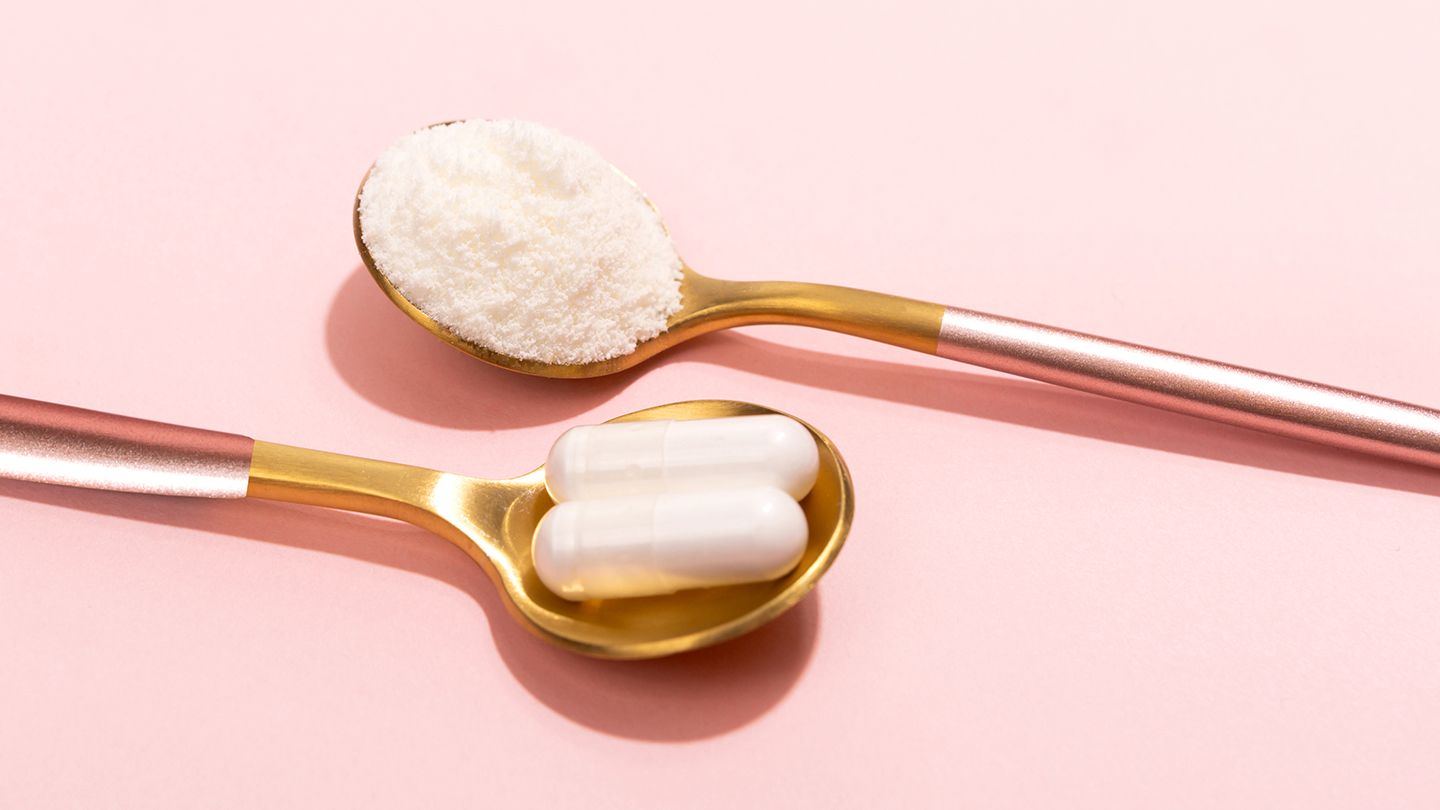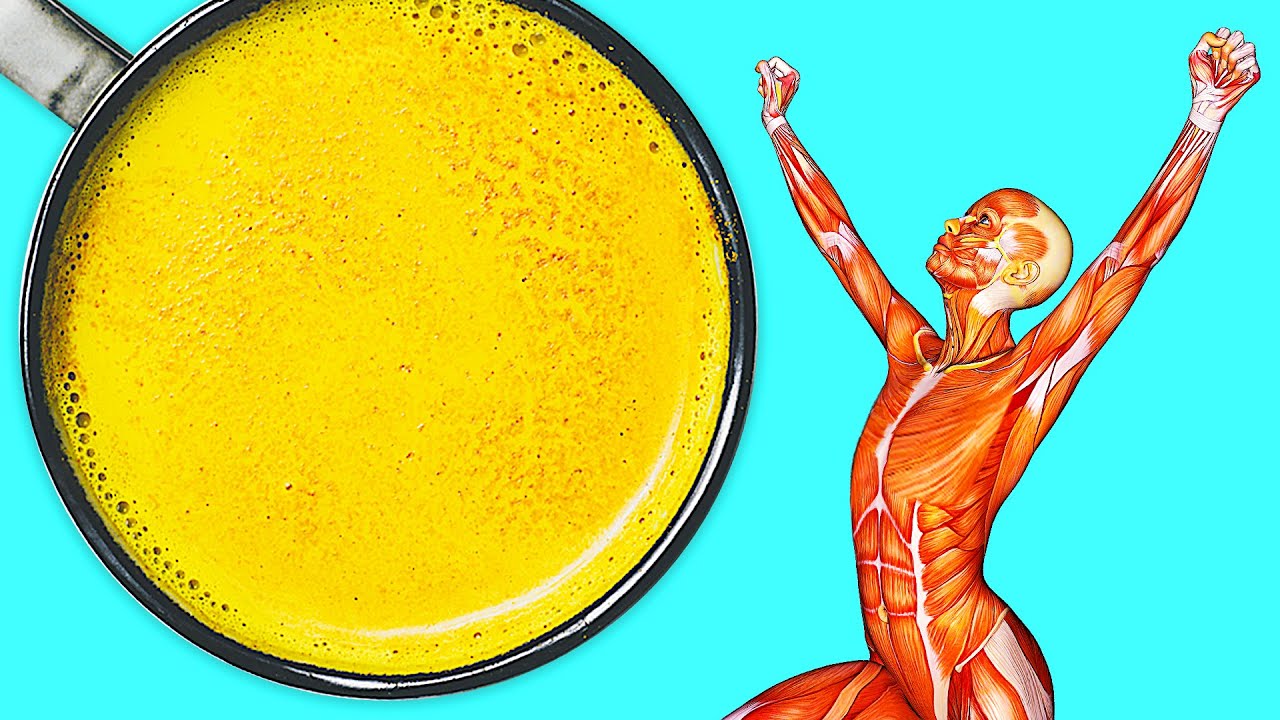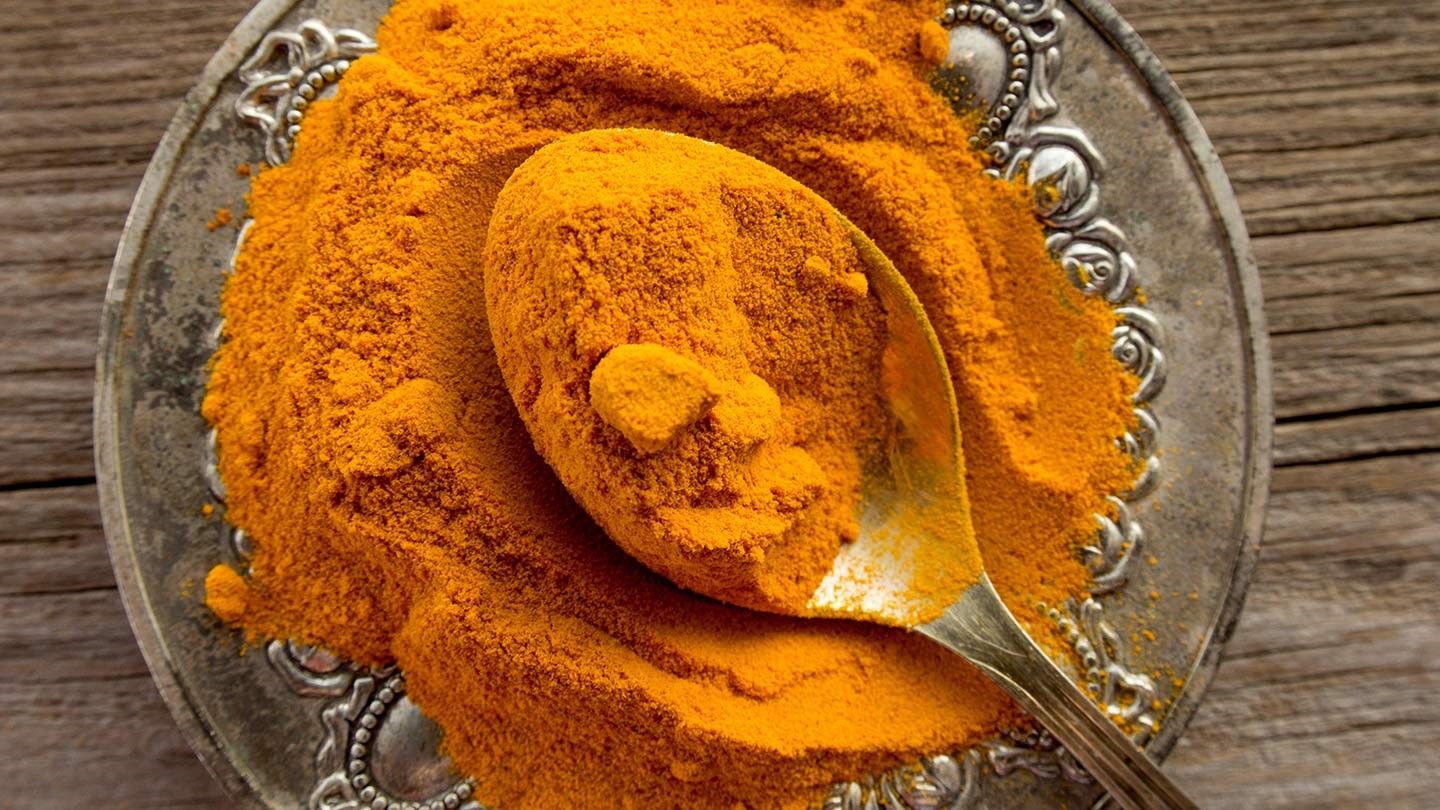Multi Collagen Turmeric - Its Uses And Health Benefits
Collagen is the most common protein in the body. It is sometimes called "the glue that holds things together." Collagen is a protein that is important for good health and looks, but as we get older, we make less of it. Integrating collagen peptides from grass-fed cow collagen and undenatured chicken collagen with the finest plant-based components is what makes multi collagen turmeric so special.
Author:Suleman ShahReviewer:Han JuSep 23, 2022172.8K Shares2.6M Views

Collagen is the most common protein in the body. It is sometimes called "the glue that holds things together."
Collagen is a protein that is important for good healthand looks, but as we get older, we make less of it.
Integrating collagen peptides from grass-fed cow collagen and undenatured chicken collagen with the finest plant-based components is what makes multi collagen turmericso special.
If you want more supple skin, stronger nails and hair, and more flexible joints, multi collagen turmeric is what you need.
What Is Collagen?
Among all the proteins in your body, collagen is the most prevalent. About 30% of its protein content comes from this. Skin, muscles, bones, tendons, ligaments, and other connective tissues all rely on collagen for their structure. It is also present in your organs, blood vessels, and intestinal lining.
Amino acids are the building blocks of proteins. Collagen relies mostly on the amino acids proline, glycine, and hydroxyproline. Proteins have a triple helix structure, which is formed by the grouping of these amino acids. Vitamins C, D, E, and K, as well as zinc, copper, and manganese, are important for making the triple helix in your body.

What the Science Says | Collagen
Functions Of Collagen In The Body
Without collagen's main function of giving structure, strength, and support, your body would not work as it should. Among the many functions of collagen, we highlight the following:
- Fostering the development of fibroblasts in the dermis (the skin's middle layer), which is important for new cell growth.
- Contributing to the process of replacing old, damaged skin cells.
- Offering a shield for vital organs.
- The process of providing your skin with form, strength, and flexibility.
- Facilitating the formation of clots in the blood.
The Different Types Of Collagen
About 28 different types of collagen have been discovered. How the molecules are put together, which cell components are included, and which tissues are employed to construct the collagen all contribute to the variety of types. Each collagen fibril possesses at least one triple helix structure.
The five primary forms of collagen and the tasks they perform are as follows:
- Type I:This type accounts for 90% of the collagen in your body. Type I collagen is densely packed and is utilized to form your skin, bones, tendons, and ligaments.
- Type II:This type is found in elastic cartilage, which provides joint support.
- Type III:This type is found in muscles, arteries and organs.
- Type IV:This type is found in the layers of your skin.
- Type V:This type is found in the cornea of your eyes, some layers of skin, hair and tissue of the placenta.
Uses Of Collagen
Your body naturally produces collagen, which you can obtain from foods such as chicken and fish skin, as well as collagen supplements, if you want to help your body produce more of it.
Some of the signs of aging that collagen supplements and face creams are meant to help with are wrinkles, dry skin, and joint pain. Collagen is available in powder, pill, and liquid form. It mixes well with hot or cold liquids, as well as snacks like oatmeal, yogurt, and energy balls.
Collagen and collagen-based materials are also used in the medical area for a variety of purposes, such as the treatment of wounds, burns, and diabetic ulcers. Because of its humectant and moisturizing characteristics, collagen is often used in cosmetic goods such as moisturizers and serums.
What Causes Collagen Loss?
Collagen production inevitably decreases with increasing age. Collagen also breaks down and disperses more unevenly. These modifications cause the skin to dry up and droop, two telltale indications of aging.
As a person ages, collagen in the skeleton breaks down, which makes the bones less strong. Collagen depletion and degradation are natural consequences of aging, but some food and lifestyle choices might hasten this process.
Cigarette smoking, for instance, has long been linked to collagen degradation, premature skin aging, wrinkles, and elasticity loss. People who drink too much alcohol may age faster than they should because it stops collagen from forming and makes it harder for the skin to heal itself.
A further mechanism by which a diet heavy in added sugar and ultra-processed foods might hasten the aging process is a process called glycation, which slows collagen turnover and disrupts collagen's capacity to interact with neighboring cells and proteins. UV damage can make your skin age faster, but if you wear sunscreen and stay out of the sun's harmful rays, you can delay this.
What Is Turmeric?
The root of the plant, Curcuma longa, is ground up and used to make the popular spice turmeric. The curcumin in it may help reduce inflammation. Because of its warm, bitter taste, curry powders, mustards, butter, and cheeses all benefit from turmeric's flavor and color because of its warm, bitter taste.
Turmeric is commonly used to treat illnesses involving pain and inflammation due to the potential anti-inflammatory effects of curcumin and other compounds in turmeric. Turmeric is a popular remedy for osteoarthritis.
There is little to no solid scientific evidence to back its usage for a wide variety of conditions, including hay fever, depression, excessive cholesterol, a form of liver disease, and itching. Furthermore, turmeric has not been shown to be effective against COVID-19.

Start Taking Turmeric Every Day, See What Happens to Your Body
Benefits Of Turmeric
Turmeric, besides being a delicious and healthy spice, has long been used in Ayurvedic and Chinese medicine to cure a wide range of illnesses, including inflammation, skin disorders, wounds, digestive and liver issues.
Anti-Inflammatory Properties
Inflammation can be lessened by using turmeric, according to multiple studiescited by the Arthritis Foundation. Arthritis sufferers may feel less pain as a result of this anti-inflammatory property. Turmeric capsules of 400–600 milligrams (mg) may be taken up to three times a day, as recommended by the foundation, to reduce inflammation.
Pain Relief
Traditionally, turmeric has been used as a pain reliever. The spice has also been said to help with arthritis discomfort. One study found that turmeric was just as good as ibuprofen (Advil) at treating the pain of knee arthritis.
This makes it more likely that turmeric can be used for this purpose. The people in the study took 800 mg of turmeric every day in capsule form, but different sources seem to recommend different amounts.
Improving Liver Function
Due to its antioxidant properties, turmeric has recently gained popularity. Turmeric appears to have such a potent antioxidant impact that it may prevent liver damage from pollutants. If true, this is encouraging newsfor those who take powerful medications for diabetesor other illnesses that have the potential to cause liver damage over time.
Possibly Reducing The Risk Of Cancer
Curcumin may be useful in treating cancer. There is evidence that it protects against several types of cancer, including pancreatic, prostate, and multiple myeloma.
Digestion
Curry powder contains turmeric because of its ability to enhance food flavor. On the other hand, turmeric has been shown to aid digestion. The antioxidant and anti-inflammatory qualities of the spice can aid in digestion.
To aid digestion, turmeric is utilized in Ayurvedic medicine. Recently, researchers in Western medicine have begun to examine turmeric's potential for reducing inflammation and permeability in the digestive tract. The potential of the spice as a therapyfor irritable bowel syndrome is even being researched (IBS).
Side Effects Of Turmeric
Potential health advantages of turmeric should be weighed against the risks it poses before high doses are consumed.
Upsetting The Stomach
The active ingredients in turmeric that promote digestive health in small doses can cause irritation in large ones. Cancer patients who took turmeric for treatment dropped out of studies because of stomach upset.
The anti-inflammatory properties of turmeric also make it useful for boosting gastric acid production. Some people may be able to digest better because of this, but othersmay feel worse because of it.
Blood-Thinning Properties
Turmeric's cleansing effects may also make it easier to bleed. There doesn't seem to be any apparent explanation for this.
The way turmeric works in your blood may also contribute to its other purported benefits, such as lowering cholesterol and blood pressure. It is not recommended that people using blood-thinning medications like warfarin (Coumadin) use significant amounts of turmeric.
Stimulating Contractions
Some people claim that eating curry while pregnant will help the process along. Although there isn't much hard evidence, it seems that turmeric can help with PMS symptoms.
Because of its blood-thinning properties, turmeric should be avoided by pregnant women. Small amounts of turmeric that are used as a spice are safe to eat every day.
Benefits Of Multi Collagen Turmeric
It is convenient and easy to use, has 10 grams of grass-fed and pasture-raised collagen with undenatured Type II collagen, and it supports skin elasticity, strong nails, healthy hair, joints, and mobility with a delicious apple cinnamon flavor. The ingredients used to make multi collagen turmeric are organic apple flavor, organic cinnamon, organic stevia extract (leaf), and potassium chloride (stabilizer for chicken collagen).
People Also Ask
What Are The Benefits Of Collagen And Turmeric?
- Joint pain relief.
- Helps to relieve inflammation.
- Combines the therapeutic benefits of collagen & turmeric for a natural joint pain solution.
Is It Okay To Take Collagen And Tumeric Together?
All of the benefits of collagen, turmeric, and biotin may be more easily accessed when taken together. Together, these three potent treatments can do wonders for your hair, skin, and nails.
What Are The Benefits Of Multi Collagen?
Taking collagen supplements is linked to a variety of health advantages with minimal risk. Muscle gains, bone protection, pain relief in the joints, and better skin with fewer wrinkles and dryness are all possible benefits of taking supplements.
Final Note
Collagen is an essential component in the formation of the body's structure, as well as the maintenance of its strength and support. The discussion on whether or not collagen supplements are beneficial is still going on. It has been suggested that including turmeric in your diet may benefit your health; thus, it is critical to take collagen and turmeric together. Also, a multi collagen turmeric supplement may be just what you require in this case.

Suleman Shah
Author
Suleman Shah is a researcher and freelance writer. As a researcher, he has worked with MNS University of Agriculture, Multan (Pakistan) and Texas A & M University (USA). He regularly writes science articles and blogs for science news website immersse.com and open access publishers OA Publishing London and Scientific Times. He loves to keep himself updated on scientific developments and convert these developments into everyday language to update the readers about the developments in the scientific era. His primary research focus is Plant sciences, and he contributed to this field by publishing his research in scientific journals and presenting his work at many Conferences.
Shah graduated from the University of Agriculture Faisalabad (Pakistan) and started his professional carrier with Jaffer Agro Services and later with the Agriculture Department of the Government of Pakistan. His research interest compelled and attracted him to proceed with his carrier in Plant sciences research. So, he started his Ph.D. in Soil Science at MNS University of Agriculture Multan (Pakistan). Later, he started working as a visiting scholar with Texas A&M University (USA).
Shah’s experience with big Open Excess publishers like Springers, Frontiers, MDPI, etc., testified to his belief in Open Access as a barrier-removing mechanism between researchers and the readers of their research. Shah believes that Open Access is revolutionizing the publication process and benefitting research in all fields.

Han Ju
Reviewer
Hello! I'm Han Ju, the heart behind World Wide Journals. My life is a unique tapestry woven from the threads of news, spirituality, and science, enriched by melodies from my guitar. Raised amidst tales of the ancient and the arcane, I developed a keen eye for the stories that truly matter. Through my work, I seek to bridge the seen with the unseen, marrying the rigor of science with the depth of spirituality.
Each article at World Wide Journals is a piece of this ongoing quest, blending analysis with personal reflection. Whether exploring quantum frontiers or strumming chords under the stars, my aim is to inspire and provoke thought, inviting you into a world where every discovery is a note in the grand symphony of existence.
Welcome aboard this journey of insight and exploration, where curiosity leads and music guides.
Latest Articles
Popular Articles
